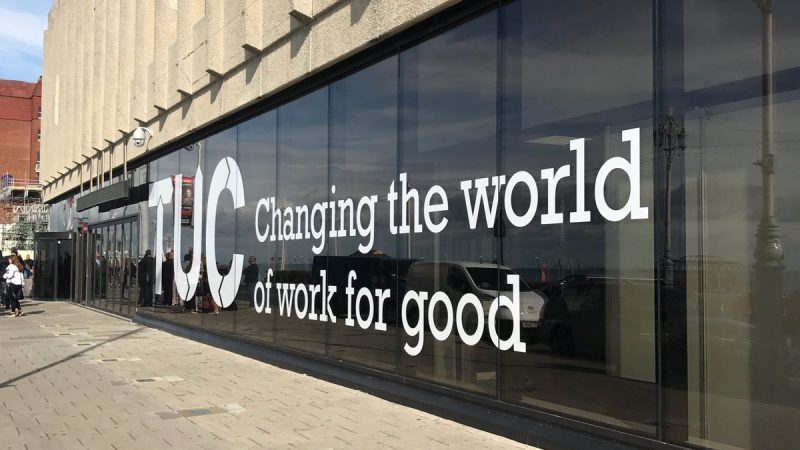
Workers in the UK are set to experience the most severe “wage squeeze” among G7 countries as pay is forecast to slump by more than 6% in real terms over the next two years, according to research by the TUC.
Analysis of figures from the Organization for Economic Cooperation and Development (OECD), published by the trade union federation today, found that average real wages in the UK are set to plummet by £1,750 between 2022 and 2023.
Commenting on the research, Frances O’Grady argued that “making ends meet shouldn’t be a battle” but “having repeatedly promised a high-wage economy, the Conservatives have consigned Britain to the bottom of the league for pay growth”.
“Years of standstill wages have left households brutally exposed to this cost-of-living crisis. The number one priority for Tory leadership candidates should be to get pay rising across the economy. This is the best way to give people long-term financial security and to stop families from lurching from crisis to crisis,” she added.
Thousands of protestors took to the streets last month to push the government to take action on the spiralling cost of living and to demand better pay and conditions in a demonstration coordinated by the federation of 48 trade unions.
The TUC has called for “significant rise” in the national minimum wage, strengthening of collective bargaining rights, a real-terms pay rise for public sector workers aimed at “restoring earnings lost over the last decade” and for the government to raise Universal Credit to 80% of the living wage.
Boris Johnson has repeatedly pledged to create a high-wage economy. The Prime Minister told parliament just last month that the government would “level up across the whole of the UK by increasing access to high-wage, high-skilled jobs”.
But the UK has seen “unprecedented” stagnation in living standards, according to the Resolution Foundation. Economist at the think tank Mike Brewer said recently that pay has “failed to grow at all in real terms over the course of the 2010s”.
The TUC has argued that this stagnation in wages left households “brutally exposed” when the cost-of-living crisis hit. Previous analysis by the union body found that working people lost nearly £20,000 in real earnings between 2008 and 2021 as a result of pay not keeping pace with inflation.
Following years of benefits freezes and rapid growth in the proportion of people in insecure work, most people in poverty now live in a family in which someone has a job, according to anti-poverty think tank the Joseph Rowntree Foundation.
While the government has repeatedly said that more people are in employment, the number in insecure work has increased steadily over the past decade. The number employed on zero-hour contracts – which do not guarantee any shifts – hit one million in the first three months of 2022, for example.
The number of food banks across the UK has risen dramatically over the past 12 years The Trussell Trust, the UK’s largest food bank provider, operated just 20 sites in 2008 – the charity now runs 400 food banks with 1,300 places in its network where people can collect supplies.




More from LabourList
Government abandons plans to delay 30 local elections in England
‘The cost of living crisis is still Britain’s defining political challenge’
‘Nurses are finally getting the recognition they deserve’